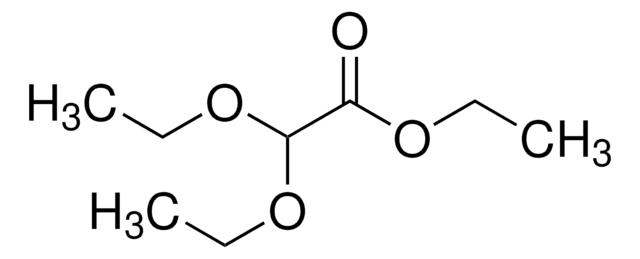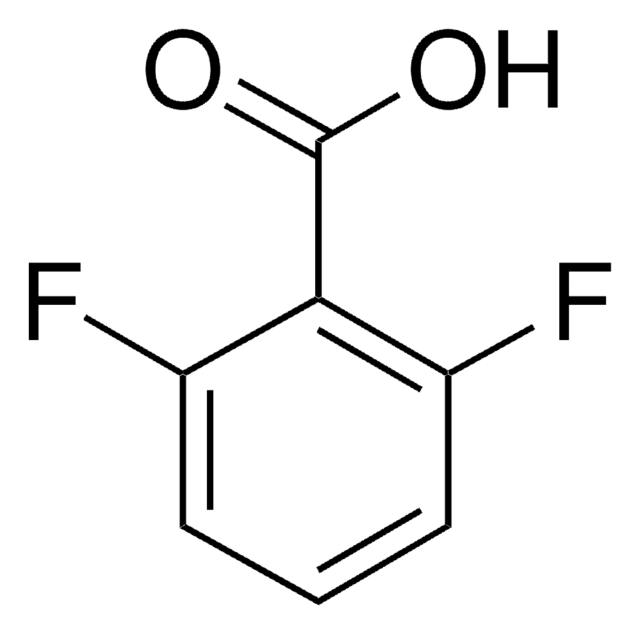All Photos(1)
About This Item
Linear Formula:
F2C6H3CO2H
CAS Number:
Molecular Weight:
158.10
MDL number:
UNSPSC Code:
12352100
PubChem Substance ID:
Recommended Products
Assay
97%
mp
121-123 °C (lit.)
SMILES string
OC(=O)c1cc(F)cc(F)c1
InChI
1S/C7H4F2O2/c8-5-1-4(7(10)11)2-6(9)3-5/h1-3H,(H,10,11)
InChI key
GONAVIHGXFBTOZ-UHFFFAOYSA-N
General description
3,5-Difluorobenzoic acid forms dimers that were stabilized by hydrogen bonds between carboxyl groups. The on-line determination of 3,5-difluorobenzoic acid in water was studied using membrane inlet mass spectrometry with in-membrane preconcentration.
Signal Word
Warning
Hazard Statements
Precautionary Statements
Hazard Classifications
Eye Irrit. 2 - Skin Irrit. 2 - STOT SE 3
Target Organs
Respiratory system
Storage Class Code
11 - Combustible Solids
WGK
WGK 3
Flash Point(F)
Not applicable
Flash Point(C)
Not applicable
Personal Protective Equipment
dust mask type N95 (US), Eyeshields, Gloves
Certificates of Analysis (COA)
Search for Certificates of Analysis (COA) by entering the products Lot/Batch Number. Lot and Batch Numbers can be found on a product’s label following the words ‘Lot’ or ‘Batch’.
Already Own This Product?
Find documentation for the products that you have recently purchased in the Document Library.
C S Creaser et al.
Analytical chemistry, 72(13), 2730-2736 (2000-07-25)
The on-line determination of volatile and semivolatile organic compounds (SVOCs) is reported using membrane inlet mass spectrometry with in-membrane preconcentration (IMP-MIMS). Semivolatile organic compounds in aqueous samples are preconcentrated in a flow-through silicone hollow-fiber membrane inlet held in a GC
3, 5-Difluorobenzoic acid.
Acta Crystallographica Section E, Structure Reports Online, 63(5), o2754-o2754 (2007)
Riqiang Fu et al.
Journal of magnetic resonance (San Diego, Calif. : 1997), 293, 34-40 (2018-06-12)
A small flip-angle pulse direct polarization is the simplest method commonly used to quantify various compositions in many materials applications. This method sacrifices the sensitivity per scan in exchange for rapid repeating of data acquisition for signal accumulation. In addition
Our team of scientists has experience in all areas of research including Life Science, Material Science, Chemical Synthesis, Chromatography, Analytical and many others.
Contact Technical Service








